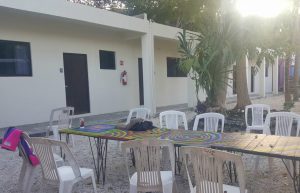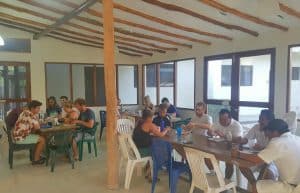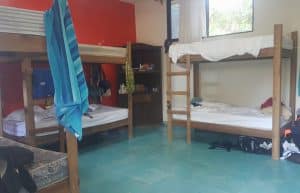GoEco > North America > Mexico > Under 18 Marine Conservation Expedition

Please note: This volunteer program is on hold. In the following links, you can check out our available Volunteer Expeditions for Teens:
Join this unique teenage volunteer project in the sparkling Yucatan Peninsula of Mexico!
Program Highlights:
Program Schedule:
Arrival Day, Saturday: Arrive into Cancun International Airport (CUN). Volunteers will be picked up from the airport and taken to the project location of Puerto Morales. Participants will settle into their new home and receive a welcome presentation and project orientation.
Days 1-4, Sunday-Wednesday (Training Days): Volunteers will partake in various training sessions, including studying theory, taking a written exam and practicing dive skills in a pool before partaking in their first open water dives. (Those who are already PADI Open water certified will train for their PADI Advanced Open Water certification). Please note that these training sessions are dependent on weather conditions, and the training may take longer.
Days 5-6, Thursday-Friday: Upon successful completion of the dive certification, volunteers will begin their marine conservation work alongside professional conversationalists and dive experts.
Days 7-8, Saturday-Sunday: Arranged group excursion!
Days 9-13, Monday-Friday: Volunteers will continue their marine conservation work alongside professional conversationalists and dive experts.
Day 14, Saturday: Volunteers will be taken to Cancun International Airport for departure.
For parents: Because this project is specifically designed for teenage volunteers, there is a high level of supervision by well-trained staff and conservation experts.GoEco can recommended specific airlines and flights to group participants together. Recommended airlines will offer a chaperone service, airline-provided flight chaperones who will accompany volunteers on their flight from their city of departure to their program. This chaperone service must be arranged with the airline itself, and the cost varies by airline.
Dive Equipment Note: Fins, Inflatable Surface Marker Buoy with spool reel, wetsuit and mask with snorkel are not included in program cost.







What’s Included





What’s not Included
Flights, visas (if required), travel health insurance, weekend meals, fins, Inflatable Surface Marker Buoy with spool reel, wetsuit and mask with snorkel, personal expenses.

This project is located in Puerto Morelos, Mexico. The site is known for its beautiful beaches and thriving biodiversity. Its pristine coral reefs (the beginnings of the Mesoamerican Reef) are home to a wide variety of beautiful marine life, which volunteers have the opportunity to observe and study during their time here.

On this project you will become familiar with the different species of fish, coral and other marine life. All of the data you collect during your project will be sent to local organizations in order to help them promote marine conservation efforts. Volunteers on this project will spend their first four days becoming either PADI Open Water certified or Advanced Open Water certified. Volunteers will participate in lectures and learn about the different marine life species that they will later be studying at the Mesoamerican Barrier Reef. Volunteers will be conducting survey dives and collecting data on coral and fish. Additional activities may include beach cleanups, environmental awareness promotion and/or visits to local conservation organizations.
Some of your tasks may include:









Please take note of this project’s minimum requirements:

Included in this expedition are two organized, group trips. Each year the excursions may vary. In the past, volunteers have toured ancient Mayan ruins, visited a Mayan village, visited a theme park including a zipline course and more!

© 2022 GOECO | All rights reserved
Develop & Design | Msite